To keep skin safe and achieve ideal skin care, it is important to follow a healthy diet and skincare routine. By paying attention to what you eat and using proper skincare products, you can promote skin health and prevent various skin problems.
Maintaining healthy and beautiful skin requires more than just using the right skincare products; it also involves nourishing your body from within. Just as the saying goes, “you are what you eat,” the food we consume plays a significant role in our overall health, including our skin.
Therefore, it is essential to understand how our dietary choices can impact the appearance and health of our skin. By combining a well-balanced diet with an effective skincare routine, you can keep your skin safe and achieve the ideal skin care results you desire. We will explore the importance of eating for ideal skin care and how specific nutrients can benefit your skin’s health. Let’s delve into the fascinating connection between diet and skin.
Importance Of Skin Health1
Our skin is often underestimated but plays a vital role in our overall health and well-being. As the largest organ of our body, it deserves all the care and attention we can give. Not only does it act as a protective barrier against harmful environmental factors, but it also serves as a window into our internal health. In this article, we will
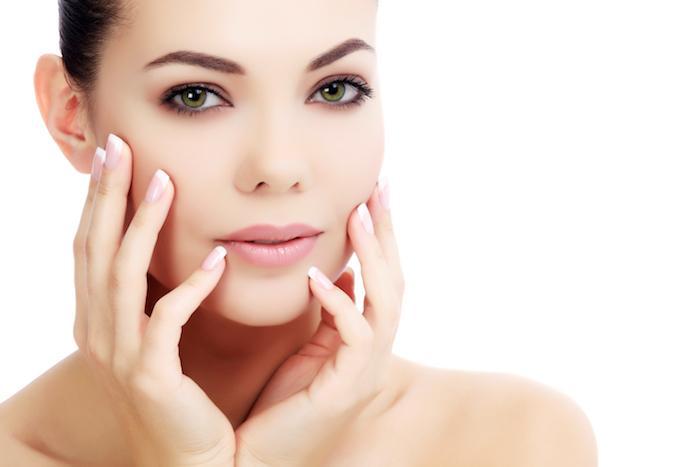
explore the significance of skin health and how maintaining it through proper nutrition can lead to ideal skin care.
Skin As The Largest Organ
The human skin is our body’s largest organ, accounting for around 15% of our total body weight. Its immense size and importance cannot be overstated. The skin acts as a shield, safeguarding the delicate tissues, organs, and systems within our body from external threats such as bacteria, viruses, toxins, and UV radiation. It also helps to regulate body temperature, stores vital substances, and aids in sensory perception.
Role Of Skin In Protecting The Body
The skin plays a crucial role in protecting our body from harm. Its multiple layers, including the outermost layer called the epidermis, provide a physical barrier that prevents the entry of harmful substances and pathogens. Additionally, the skin produces antimicrobial compounds and houses immune cells, further enhancing its defense mechanisms. Without skin, our body would be exposed to a range of potential dangers, resulting in infections, injuries, and other health complications.
Impact Of Unhealthy Skin On Overall Well-being
Unhealthy skin can have a profound impact on our overall well-being. When our skin’s natural protective barrier is compromised due to conditions like dryness, inflammation, or infections, it becomes more susceptible to harm. This vulnerability can lead to more frequent infections, slow wound healing, and increased discomfort. Moreover, the appearance of our skin plays a significant role in our self-esteem and confidence. Skin conditions such as acne, psoriasis, or eczema can have a negative impact on our mental and emotional well-being, affecting our daily lives and social interactions.
Ensuring Skin Health Through Nutrition
Proper nutrition plays a crucial role in maintaining healthy skin. Essential nutrients, vitamins, and minerals obtained from a well-balanced diet contribute to the overall integrity and function of the skin. Omega-3 fatty acids found in fatty fish, nuts, and seeds help to maintain skin elasticity and reduce inflammation. Vitamins A, C, and E, commonly found in fruits, vegetables, and nuts, help protect the skin from damage caused by free radicals and promote collagen production. Antioxidants such as selenium and zinc, found in seafood, whole grains, and legumes, support skin health by combating oxidative stress.
In conclusion, understanding the importance of skin health is crucial for maintaining overall well-being. By recognizing the skin as our largest organ and its role in protecting our body, we can actively take steps to keep it healthy. Eating a nutritious diet, rich in essential nutrients, can further support the health and vitality of our skin, enabling us to achieve ideal skin care.
Easy Way to Get Fat: The Ultimate Guide to Healthy Rapid Weight Gain
Understanding Skin Types
When it comes to skin care, it is vital to understand your skin type, as each type has different needs and requires specialized care. By identifying your skin type, you can tailor your skincare routine to keep your skin safe, healthy, and glowing.
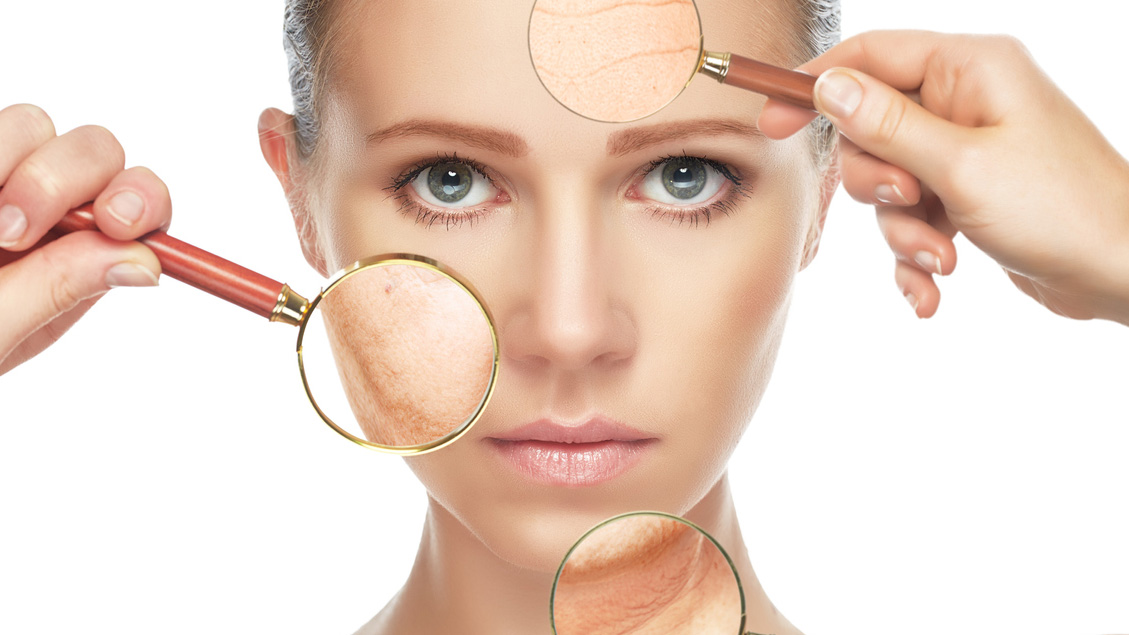
Different Skin Types: Oily, Dry, Combination, Sensitive
There are four common skin types: oily, dry, combination, and sensitive. Let’s take a closer look at each type and understand their characteristics and specific needs.
Oily Skin
Oily skin is characterized by an overproduction of sebum, resulting in a shiny complexion and enlarged pores. Individuals with oily skin often struggle with acne breakouts and blackheads due to excess oil clogging the pores.
- Excessive shine, especially on the T-zone (forehead, nose, and chin)
- Enlarged pores
- Frequent acne breakouts and blackheads
- Regular cleansing to remove excess oil and impurities
- Use of oil-free and non-comedogenic products to prevent clogged pores
- Mattifying products to control shine
Dry Skin
Dry skin lacks moisture and often feels tight and flaky. It can be more prone to premature aging and irritation due to its reduced ability to produce natural oils and retain moisture.
- Overall dull and rough texture
- Tightness and discomfort
- Pronounced fine lines and wrinkles
- Hydrating skincare products to replenish moisture
- Emollient-rich moisturizers to lock in hydration
- Gentle exfoliation to remove dead skin cells without causing irritation
Combination Skin
Combination skin is a mix of both oily and dry skin characteristics. Usually, the T-zone (forehead, nose, and chin) is oily, while the cheeks and other areas may be dry or normal. Balancing the needs of both skin types can be a challenge.
- Oily T-zone (forehead, nose, and chin)
- Dry or normal cheeks and other areas
- Possible enlarged pores on the T-zone
- A combination of oil-control products and hydrating products
- Gel-based or lightweight moisturizers to prevent excessive oiliness
- Targeted treatments for specific concerns on different areas
Sensitive Skin
Sensitive skin is easily irritated and may react to various environmental factors, skincare products, or even certain ingredients. It requires extra care and gentle formulations to maintain its health and minimize reactions.
- Tendency to get easily irritated and inflamed
- Redness and itchiness
- Prone to reactions from skincare products or environmental factors
- Use of fragrance-free, hypoallergenic products
- Gentle cleansing to avoid further irritation
- Avoidance of harsh ingredients and excessive exfoliation
Now that you have an understanding of different skin types, it’s time to determine your own skin type. Remember, assessing your skin type accurately will help you choose the right skincare products and establish an effective routine that caters to your individual needs and concerns.
Easy Way to Get Fat: The Ultimate Guide to Healthy Rapid Weight Gain
Essential Nutrients For Healthy Skin
When it comes to keeping our skin healthy and glowing, skincare products and routines are often the first things that come to mind. However, what we eat can play a crucial role in ensuring our skin stays safe and radiant. Our skin is the largest organ in our body and requires a range of essential nutrients to function optimally. In this blog post, we will explore the role of vitamins (A, C, E), minerals (zinc, selenium), and essential fatty acids in skin health.
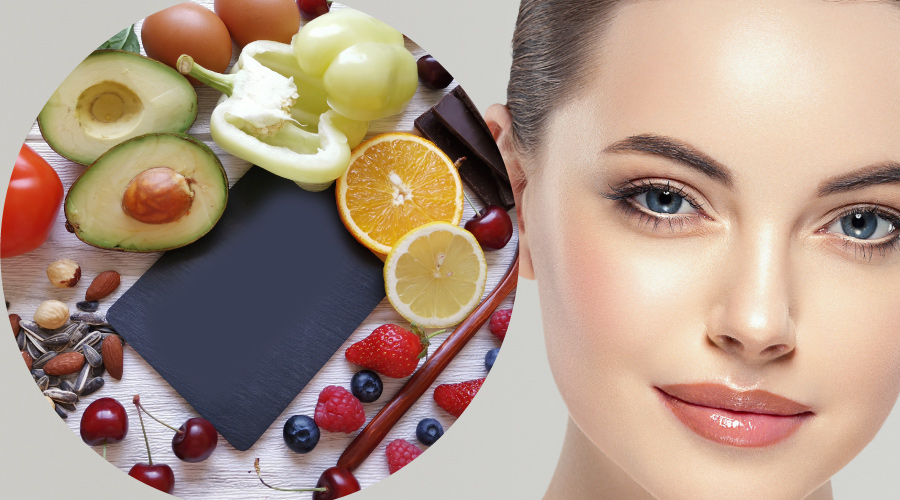
Role Of Vitamins (a, C, E) In Skin Health
Vitamins are essential for maintaining healthy skin as they provide various benefits such as antioxidant protection, collagen synthesis, and skin repair. Let’s dive into the specific roles of vitamins A, C, and E and how they contribute to skin health.
Vitamin A: Also known as retinol, vitamin A plays a vital role in promoting skin cell regeneration, preventing the signs of aging, and maintaining skin moisture. It supports the production of collagen and elastin, which are essential for firm and youthful-looking skin.
Vitamin C: As an antioxidant, vitamin C helps protect the skin from harmful free radicals caused by factors such as UV exposure and pollution. It also aids in collagen production and facilitates wound healing, contributing to a brighter and more even-toned complexion.
Vitamin E: Another powerful antioxidant, vitamin E helps neutralize free radicals while protecting the skin from oxidative stress. It improves skin elasticity and texture, reduces inflammation, and supports overall skin health.
Importance Of Minerals (zinc, Selenium) For Skin Care
In addition to vitamins, minerals are vital for maintaining healthy skin. Two minerals that play a significant role in skin care are zinc and selenium.
Zinc: Zinc is involved in various skin functions, including cell growth and regeneration, collagen synthesis, and wound healing. It also possesses anti-inflammatory properties, making it beneficial for acne-prone skin and inflammatory skin conditions such as eczema.
Selenium: Selenium works alongside antioxidants to protect the skin from oxidative damage caused by free radicals. It supports the immune system, helps prevent skin infections, and reduces inflammation.
Benefits Of Essential Fatty Acids For Skin Care
Essential fatty acids are healthy fats that our body cannot produce on its own but are essential for optimal skin health. They provide numerous benefits for the skin, including:
- Moisturization: Essential fatty acids, such as omega-3 and omega-6, help improve skin hydration by strengthening the skin barrier and reducing water loss, resulting in smoother and more supple skin.
- Inflammation Reduction: These fatty acids possess anti-inflammatory properties, which can help alleviate symptoms of inflammatory skin conditions like psoriasis and eczema.
- Anti-Aging: Essential fatty acids promote collagen production and help maintain skin elasticity, reducing the appearance of fine lines and wrinkles.
- Protective Barrier: By fortifying the skin’s barrier function, essential fatty acids help shield the skin from external aggressors, such as UV rays and pollutants, reducing their damaging effects.
In conclusion, maintaining healthy skin involves more than just external skincare products. Consuming a balanced diet rich in vitamins (such as A, C, E), minerals (including zinc and selenium), and essential fatty acids can provide the necessary nutrients for supporting radiant and youthful-looking skin. So, make sure to include a variety of foods that are abundant in these essential nutrients to keep your skin safe and healthy.
7 Energizing Power Foods to Start Your Day | Healthy Breakfast
Hydration For Skin Health
One of the most crucial aspects of maintaining healthy and glowing skin is proper hydration. Adequate water intake can significantly impact the health and appearance of our skin. By ensuring that we stay hydrated, we can keep our skin moisturized, supple, and free from dryness. In this section, we will explore the significance of water intake for skin hydration, the effects of dehydration on the skin, and some tips for maintaining proper skin hydration.
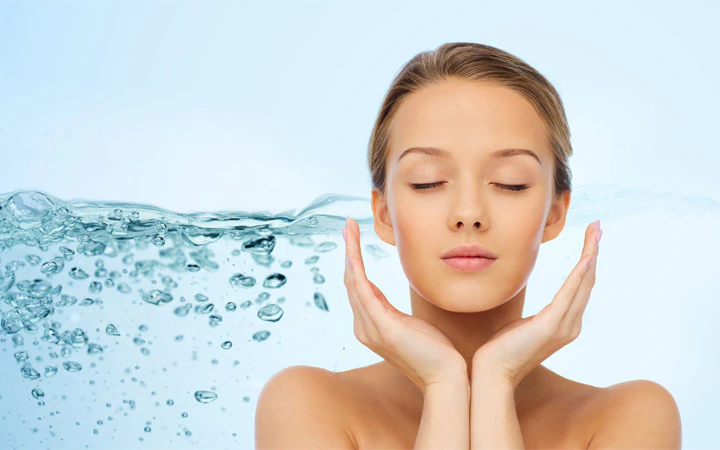
Significance Of Water Intake For Skin Hydration
Water is the elixir of life, and its importance cannot be overstated when it comes to our skin health. Staying well-hydrated helps in naturally nourishing our skin cells and maintaining their optimal function. When we consume enough water, it helps to flush out the toxins from our body, keeping our skin clear and radiant. In addition, water acts as a primary building block for our skin cells, providing the necessary hydration that promotes cell regeneration and renewal.
Effects Of Dehydration On Skin
Insufficient water intake can have detrimental effects on our skin. When we are dehydrated, our skin tends to become dry, dull, and prone to various skin issues. Dehydration can cause the skin to lose its elasticity, leading to the formation of fine lines, wrinkles, and sagging. Additionally, dry skin is more susceptible to irritation, inflammation, and acne breakouts. Therefore, it is important to be mindful of our water intake to prevent these adverse effects and maintain a healthy skin barrier.
Tips For Maintaining Proper Skin Hydration
| Hydration Tips |
|---|
| 1. Drink at least 8 glasses of water daily. |
| 2. Avoid excessive consumption of caffeinated and sugary beverages, as they can contribute to dehydration. |
| 3. Eat water-rich foods such as watermelon, cucumber, and citrus fruits. |
| 4. Use a hydrating moisturizer daily to lock in moisture. |
| 5. Invest in a good humidifier to add moisture to the air during dry seasons. |
| 6. Limit exposure to hot water during showers and baths, as it can strip the skin of natural oils. |
By following these tips, you can ensure that your skin receives the hydration it needs to stay healthy and radiant. Remember, water is essential not only for our overall well-being but also for our skin health. So, make hydration a priority and witness the positive effects on your skin!
Avoiding Harmful Ingredients In Skincare Products
When it comes to keeping your skin safe and maintaining ideal skin care, it’s important to be mindful of the ingredients in your skincare products. Many popular products on the market today contain harmful chemicals that can have a negative impact on your skin health. By understanding the common harmful ingredients to avoid, you can make informed choices and prioritize the well-being of your skin.
Common Harmful Ingredients In Skincare Products
Skincare products often contain ingredients that can do more harm than good. Some of the common harmful ingredients found in these products include:
| Harmful Ingredient | Potential Side Effects |
|---|---|
| Parabens | Disruptive to hormone function, cause skin irritation |
| Sulfates | Strip away natural oils, leading to dryness and irritation |
| Fragrances | Can trigger allergies and skin sensitivities |
| Phthalates | Potential endocrine disruptors, linked to hormonal imbalances |
| Formaldehyde | Known carcinogen, can cause skin irritation |
Impact Of These Ingredients On Skin Health
The presence of these harmful ingredients in skincare products can have a significant impact on your skin health. Parabens, sulfates, and phthalates, for example, may disrupt your hormone function and potentially lead to skin irritation. Fragrances, although they may make a product more appealing, can trigger allergies and skin sensitivities, causing discomfort and inflammation. Formaldehyde, a known carcinogen, can also cause skin irritation and has long-term health implications.
Tips For Choosing Safe And Natural Skincare Products
Choosing safe and natural skincare products is essential for maintaining healthy skin. Here are some tips to guide you:
- Read product labels carefully and avoid products containing parabens, sulfates, phthalates, fragrances, and formaldehyde.
- Look for products that are labeled “fragrance-free” or “unscented” to minimize the risk of skin sensitivities and allergic reactions.
- Opt for skincare products that are made with natural and organic ingredients, without the use of harmful chemicals.
- Research brands and check for certifications or endorsements, such as being cruelty-free or eco-friendly.
- Consider consulting with a dermatologist for personalized recommendations based on your specific skin type and concerns.
By being mindful of harmful ingredients and making informed choices, you can prioritize the health and well-being of your skin. Choose skincare products that are safe, natural, and tailored to your needs, ensuring your skin remains healthy and radiant.
Healthy Lifestyle Tips Trick Master the Art of Living Well
Healthy Eating Habits For Radiant Skin
Maintaining a healthy diet is not only essential for overall well-being, but it also plays a crucial role in achieving radiant and glowing skin. Consuming the right foods can provide your skin with the necessary nutrients that promote skin health and fight against common skin issues such as acne, dryness, and premature aging. In this article, we will explore the importance of incorporating fruits and vegetables in your diet, the role of antioxidants in promoting skin health, and the significance of a balanced diet for achieving that enviable radiant skin.

Incorporating Fruits And Vegetables In Your Diet
Fruits and vegetables are powerhouses of vitamins, minerals, and antioxidants that can nourish and hydrate your skin from within. Including a variety of colorful fruits and vegetables in your daily diet can provide your skin with the necessary nutrients it needs to thrive.
Berries, such as blueberries and strawberries, are rich in antioxidants that protect your skin from damage caused by harmful free radicals. Citrus fruits like oranges and lemons are packed with vitamin C, a vital nutrient that boosts collagen production and helps in achieving a youthful glow.
Vegetables like spinach and kale are excellent sources of vitamins A and E, which help in maintaining healthy skin cells and preventing oxidative stress. Additionally, carrots are loaded with beta-carotene, a precursor to vitamin A, which promotes skin cell turnover and reduces the risk of breakouts.
Role Of Antioxidants In Promoting Skin Health
Antioxidants play a crucial role in promoting skin health by neutralizing free radicals and reducing inflammation. These harmful free radicals are produced by factors like sun exposure, pollution, and stress, and can lead to cellular damage and premature aging.
Foods rich in antioxidants, such as berries, green tea, and dark chocolate, can help combat these damaging effects. Antioxidants work by stabilizing free radicals, preventing them from causing harm to your skin. Regular consumption of antioxidant-rich foods can help improve your skin’s elasticity, reduce wrinkles, and even out your complexion.
Importance Of A Balanced Diet For Radiant Skin
A balanced diet is crucial for maintaining optimal skin health. It ensures that your body receives all the necessary nutrients it needs to function properly, including clear and healthy skin. Consuming a variety of food groups in the right proportions helps maintain a healthy weight and prevents skin issues like acne.
Include lean proteins, whole grains, and healthy fats in your diet to provide your skin with the building blocks it needs for collagen production and elasticity. Drinking an adequate amount of water is also essential as it keeps your skin hydrated and helps flush out toxins from your body.
Remember, healthy eating habits go hand in hand with a proper skincare routine. Follow a diet that is rich in fruits, vegetables, and antioxidants, and your skin will thank you with a youthful radiance that shines from within.
A List of 50 Super Healthy Foods: Transform Your Health with These Power-packed Foods!
Foods To Include For Skin Nourishment
When it comes to maintaining healthy and glowing skin, it’s not just about using the right skincare products. What you eat plays a crucial role in nourishing your skin from within. Including certain foods in your diet can provide your skin with the essential nutrients it needs to stay youthful, radiant, and blemish-free. In this article, we will explore some key foods that you can include in your diet to promote skin nourishment. Let’s dive in!

Foods Rich In Collagen For Maintaining Skin Elasticity
The protein responsible for maintaining skin elasticity is collagen. As we age, the natural production of collagen in our bodies decreases, leading to the formation of wrinkles and sagging skin. However, you can slow down this process by incorporating collagen-rich foods into your diet. These foods help to support the production of collagen, keeping your skin firm and supple.
| Collagen-Rich Foods | Description |
|---|---|
| 1. Bone Broth | Rich in collagen and other essential amino acids that support skin health. |
| 2. Fish and Shellfish | Excellent sources of collagen as well as omega-3 fatty acids, which promote skin elasticity. |
| 3. Citrus Fruits | High in vitamin C, which is essential for collagen production. |
| 4. Leafy Greens | Packed with antioxidants that protect collagen from damage. |
Nutrient-dense Foods For Promoting Skin Regeneration
Your skin is constantly regenerating itself, and consuming nutrient-dense foods can support this process. These foods are rich in vitamins, minerals, and antioxidants that play a vital role in rejuvenating your skin cells, promoting a smooth and youthful complexion.
- Dark Chocolate: Provides antioxidants that protect the skin from free radicals and improve blood flow.
- Avocado: Contains healthy fats and vitamin E, which nourish and moisturize the skin.
- Green Tea: Loaded with antioxidants that combat inflammation and protect against UV damage.
- Almonds: Packed with vitamin E and other nutrients that promote skin health and repair.
Superfoods For A Healthy And Glowing Complexion
Superfoods are nutrient powerhouses that can provide your skin with a wide range of benefits. Including these foods in your diet can help maintain a healthy and glowing complexion due to their high concentration of vitamins, minerals, and antioxidants.
- Blueberries: Packed with antioxidants that fight free radicals and protect against premature aging.
- Spinach: Rich in vitamins A and C, which promote collagen production and protect against sun damage.
- Sweet Potatoes: Contain beta-carotene, which converts to vitamin A and helps smooth out rough skin.
- Chia Seeds: Full of omega-3 fatty acids and antioxidants that hydrate and reduce inflammation in the skin.
By incorporating these foods into your daily diet, you can provide your skin with the nourishment it needs to stay healthy, youthful, and radiant. Remember, beautiful skin starts from within!
9 Tricks for Healthier, Fuller-Looking Hair: Power up Your Haircare Routine!
Lifestyle Habits For Healthy Skin
Discover simple lifestyle habits for healthy skin that will ensure you keep your skin safe and maintain its ideal appearance. Alongside a nourishing skincare routine, focusing on nutritious eating habits can contribute to achieving your skin goals effortlessly.
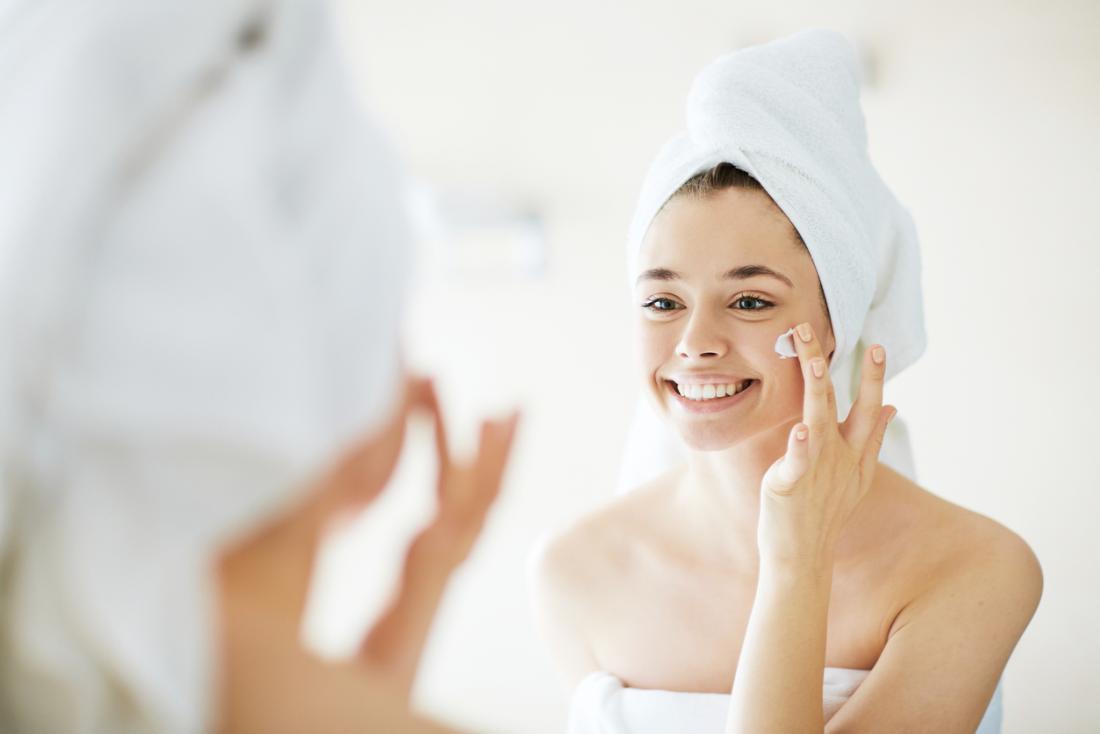
When it comes to achieving and maintaining healthy skin, it’s not just about the products you use on the outside. Your lifestyle habits play a crucial role in the overall health and appearance of your skin. By incorporating certain habits into your daily routine, you can keep your skin safe and ensure it stays in its ideal condition. In this article, we’ll explore three important lifestyle habits for healthy skin: regular exercise, stress management, and getting enough sleep.
Importance Of Regular Exercise For Skin Health
Regular exercise is not only good for keeping your body fit and healthy, but it also plays a significant role in maintaining your skin’s health. When you engage in physical activities, your blood circulation increases, supplying essential nutrients and oxygen to your skin cells. This enhanced blood flow helps carry away toxins and waste products, promoting a healthy complexion.
Additionally, exercise helps reduce stress levels in the body, which can have a positive impact on your skin. Stress is known to exacerbate various skin conditions such as acne, eczema, and psoriasis. By incorporating regular exercise into your routine, you can effectively manage stress and its harmful effects on your skin.
Managing Stress And Its Effects On The Skin
Stress can wreak havoc on your skin, leading to breakouts, dullness, and premature aging. When you’re stressed, your body produces increased levels of cortisol, a hormone that can stimulate oil production in the skin, leading to acne flare-ups. Additionally, stress can impair the skin’s ability to retain moisture, resulting in dryness and irritation.
To manage stress and minimize its effects on your skin, consider incorporating stress-reducing activities into your daily routine. This can include practicing mindfulness techniques such as meditation or deep breathing exercises. Engaging in activities you enjoy, such as hobbies or spending time with loved ones, can also help alleviate stress and improve your skin’s overall health.
Benefits Of Getting Enough Sleep For Skin Rejuvenation
Getting enough sleep is essential not only for your overall well-being but also for the health of your skin. During sleep, your body goes into repair mode, allowing your skin to regenerate and rejuvenate. Lack of sleep can disrupt these restorative processes, leading to a dull complexion, fine lines, and a lack of elasticity.
Furthermore, inadequate sleep can increase inflammation in the body, which can exacerbate existing skin conditions such as acne or rosacea. It can also impair the skin’s ability to retain moisture and disrupt the balance of hormones that regulate skin health.
Summary
To keep your skin safe and achieve ideal skin care, incorporating these lifestyle habits is crucial:
- Regular exercise to improve blood circulation and manage stress levels
- Managing stress through mindfulness techniques and engaging in enjoyable activities
- Getting enough sleep to allow for skin rejuvenation and minimize inflammation
By making these habits a priority in your routine, you can maintain healthy and radiant skin from the inside out.
10 Essential Tips for Properly Drinking Water: Get It Right!
Protecting Your Skin From Harmful Uv Rays
UV radiation, a form of energy emitted by the sun, can have detrimental effects on our skin. Prolonged exposure to UV rays can lead to sunburns, premature aging, and in severe cases, even skin cancer. It is important to understand the damage caused by UV radiation and take necessary precautions to protect our skin.

One of the most effective ways to shield our skin from harmful UV rays is by using sunscreen with a high Sun Protection Factor (SPF). SPF acts as a barrier, preventing the sun’s rays from penetrating the skin. When choosing a sunscreen, it is crucial to opt for broad-spectrum protection, as it shields against both UVA and UVB rays. Remember, even on cloudy days, UV rays can still reach our skin and cause damage, so incorporating sun protection into our daily routine is essential.
Tips for sun protection to prevent skin damage
Here are some simple yet crucial tips to ensure your skin remains safe from the damaging effects of UV radiation:
- Apply sunscreen generously to all exposed areas of your skin at least 15 minutes before stepping outside. Don’t forget often overlooked areas like the ears, neck, and back of hands.
- Reapply sunscreen every two hours or more frequently if you’re sweating or swimming.
- Wear protective clothing such as hats, sunglasses, and long-sleeved shirts to shield yourself from direct sunlight.
- Seek shade during the peak hours of sunlight, usually between 10 am and 4 pm, when the UV rays are strongest.
- Avoid tanning beds and sunlamps, as they emit harmful UV radiation that can damage your skin.
- Consider using cosmetics or moisturizers that contain SPF for added protection, particularly on days when prolonged sun exposure is anticipated.
By adhering to these sun protection practices, you can minimize the harmful effects of UV radiation on your skin and maintain its health and vitality. Remember, protecting your skin today will pay off in the long run, keeping it healthy and radiant for years to come.
Hair Care Secrets | Unlock the Power
Daily Skincare Routine For Optimal Skin Health
Your daily skincare routine plays a crucial role in maintaining the health and radiance of your skin. By following simple yet effective cleansing, exfoliating, and moisturizing techniques, and incorporating the right skincare products such as sunscreen, you can keep your skin safe and achieve your ideal skin care goals. In this article, we will explore these essential aspects of a daily skincare routine and guide you on customizing it based on your skin type.
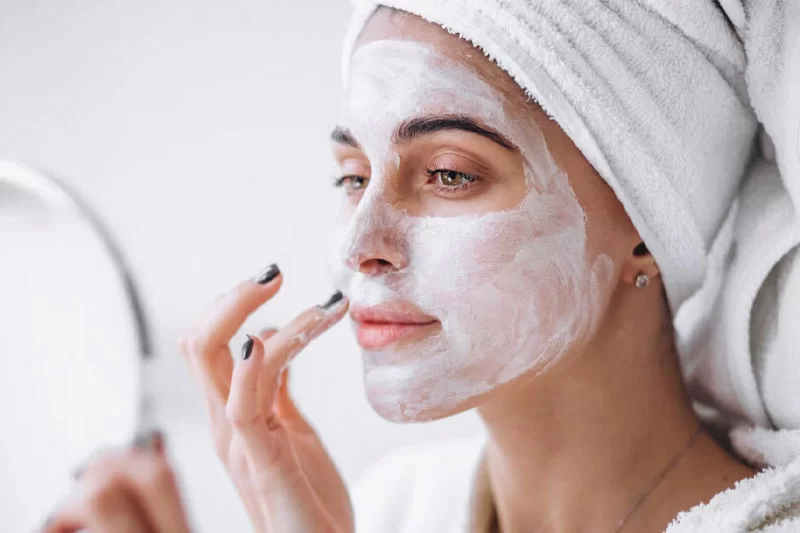
Cleansing, Exfoliating, And Moisturizing Techniques
Proper cleansing is the foundation of any successful skincare routine. Your cleanser should be gentle yet effective in removing dirt, oil, and impurities without stripping away the natural oils of your skin. Look for a cleanser that suits your skin type – whether it’s oily, dry, or combination. Using lukewarm water, apply the cleanser in circular motions, then rinse off and pat your skin dry with a soft towel.
Exfoliating plays a crucial role in getting rid of dead skin cells and revealing a fresh, glowing complexion. Choose a gentle exfoliator that suits your skin type and use it 2-3 times a week. Be cautious not to over-exfoliate, as this can cause irritation and skin damage. Massage the exfoliator onto damp skin in gentle circular motions, focusing on areas prone to dryness or congestion, such as the nose and forehead. Rinse off thoroughly and follow with a hydrating moisturizer.
Moisturizing is key to maintain your skin’s hydration and protect it from environmental stressors. Apply moisturizer right after cleansing or exfoliating when your skin is still slightly damp to lock in moisture. Look for a moisturizer that is suitable for your skin type, whether it’s lightweight for oily skin or richer for dry skin. Gently massage the moisturizer onto your face and neck in upward motions, allowing it to absorb completely before applying other products.
Incorporating Sunscreen And Other Skincare Products
No skincare routine is complete without sunscreen. Sunscreen acts as a shield against harmful UV rays that can cause premature aging, sunburns, and even skin cancer. Opt for a broad-spectrum sunscreen with an SPF of 30 or higher. Apply it generously on all exposed areas of your body, including your face, neck, arms, and legs. Reapply every two hours, or more frequently if you perspire heavily or engage in water activities.
In addition to sunscreen, consider incorporating other skincare products such as serums, toners, and eye creams to address specific concerns. These products can provide targeted solutions, whether it’s boosting collagen production, reducing dark spots, or minimizing the appearance of fine lines. When choosing these products, look for ones that are formulated with high-quality, skin-loving ingredients, and incorporate them into your routine after cleansing and before moisturizing.
Customizing Your Skincare Routine Based On Your Skin Type
Your skincare routine should be tailored to meet the specific needs of your skin type. Here are some general guidelines:
For Oily Skin:
- Use a gentle foaming cleanser that helps control excess oil
- Choose exfoliators with salicylic acid to unclog pores
- Opt for lightweight, oil-free moisturizers
- Consider using oil-absorbing sheets throughout the day
For Dry Skin:
- Use creamy or milky cleansers that provide hydration
- Exfoliate with gentle, hydrating scrubs
- Opt for rich, nourishing moisturizers with ingredients like hyaluronic acid
- Consider using a humidifier to add moisture to the air
For Combination Skin:
- Use a gentle, pH-balanced cleanser
- Exfoliate regularly with a gentle scrub
- Choose lightweight moisturizers that balance hydration without greasiness
- Consider using targeted treatments to address specific concerns in different areas of your face
Remember, consistency is key when it comes to skincare. Stick to your routine and be patient as it takes time for your skin to show improvements. Always listen to your skin’s needs and adjust your routine accordingly. With a personalized daily skincare routine and healthy lifestyle habits, you’ll be on your way to achieving optimal skin health.
Small Good Habits to Stay Healthy: Transform Your Lifestyle
Frequently Asked Questions Of Keeping Skin Safe And Eating For Ideal Skin Skin Care
How Should I Eat For Good Skin?
For good skin, adopt these guidelines: Eat a balanced diet rich in fruits, vegetables, and whole grains. Include foods high in antioxidants, such as berries and green leafy vegetables. Stay hydrated by drinking plenty of water. Limit processed foods and sugars.
Don’t forget to get enough sleep.
What Is The Best Food To Keep Your Skin Healthy?
Eating a balanced diet with fruits, vegetables, and whole grains is important for healthy skin. Foods rich in antioxidants, like berries and leafy greens, can help fight damage from free radicals and promote a youthful complexion. Additionally, including sources of omega-3 fatty acids, such as salmon or chia seeds, may also benefit skin health.
Will My Skin Improve If I Eat Healthy?
Eating healthy can improve your skin. A healthy diet provides essential nutrients for skin health, reducing issues like acne and inflammation. Proper hydration and a balanced intake of vitamins, minerals, and antioxidants from fruits, vegetables, and whole grains can promote a clearer and more radiant complexion.
What Are 3 Habits Practices For Keeping Healthy Skin?
Cleanse daily, protect with SPF, and moisturize regularly to maintain healthy skin.
How Can I Keep My Skin Safe From Harmful Uv Rays?
To protect your skin from UV rays, apply sunscreen, seek shade, and wear protective clothing.
What Foods Should I Eat For Optimal Skin Health?
Include fruits, vegetables, whole grains, and healthy fats in your diet for healthy skin.
How Often Should I Exfoliate My Skin?
Exfoliate your skin 1-2 times a week to remove dead skin cells and promote a glowing complexion.
What Are Some Natural Remedies For Acne-prone Skin?
Tea tree oil, honey, and witch hazel are natural remedies that can help to alleviate acne symptoms.
Can Drinking Enough Water Improve My Skin’s Appearance?
Yes, staying hydrated by drinking enough water can help to improve your skin’s overall appearance.
What Skincare Routine Should I Follow For Glowing Skin?
Cleanse, tone, moisturize, and protect your skin daily to achieve a healthy and radiant complexion.
Conclusion
To achieve and maintain healthy skin, it is essential to prioritize both external skincare practices and a balanced diet. By adopting a holistic approach to skincare, incorporating protective measures and eating a nutrient-rich diet, you can promote skin health and radiance.
Remember, the key is consistency and finding what works best for your individual needs. So, start incorporating these skin-safe practices and nourishing foods into your routine today for the ideal skin you desire.




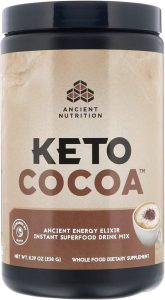

Be First to Comment